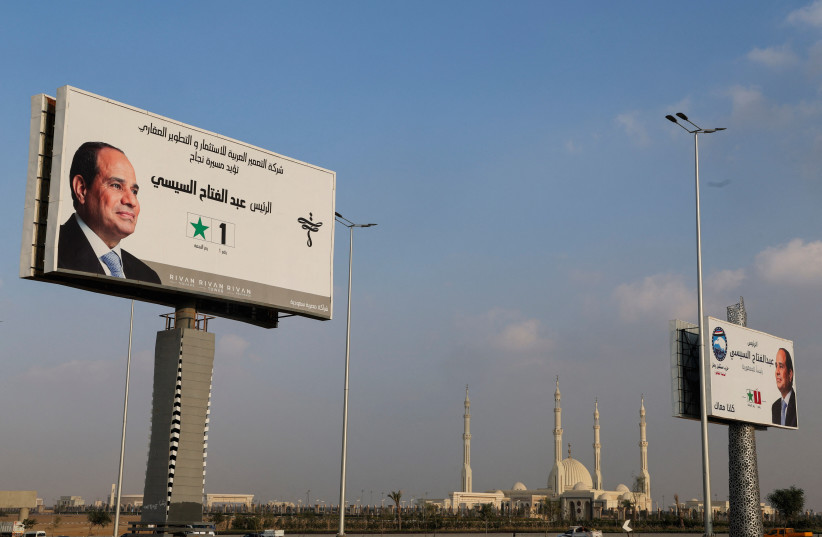Abdel Fattah al-Sisi hasswept to a third, six-year term as Egypt's president, winning 89.6% of votes in an election in which he faced no serious challengers, the National Election Authority announced on Monday.
The election took place as Egypt struggles with a slow-burning economic crisis and tries to manage the risk of spillover from the war in Gaza, which borders Egypt's Sinai Peninsula.
Some voters said the eruption of conflict in Gaza had encouraged them to vote for Sisi, who has long presented himself as a bulwark of stability in a volatile region - an argument that has also proved effective with Gulf and Western allies providing financial support to his government.
Voting in Egypt was held over three days on Dec. 10-12, with the state and tightly controlled domestic media pushing hard to boost turnout, which the election authority said had reached 66.8% - above the 41% recorded at the last presidential election in 2018.
The election featured three other candidates, none of them high profile. The most prominent potential challenger halted his run in October, saying officials and thugs had targeted his supporters - accusations dismissed by the National Election Authority.

"There were no elections, Sisi used the entire state apparatus and security agencies to prevent any serious contender from even running," said Hossam Bahgat, head of the Egyptian Initiative for Personal Rights (EIPR), an independent group.
"Just like last time he handpicked his opponents who only went through the motions of running against the president with either muted or almost no criticism of his disastrous policies."
Egypt's state media body has said the vote was a step towards political pluralism and authorities have denied violations of electoral rules.
The constitution was amended to allow further terms
Sisi, a former general, has overseen a sweeping crackdown on dissent across the political spectrum since leading the 2013 overthrow of Egypt's first democratically elected leader, Mohamed Mursi of the Muslim Brotherhood.
He was elected to the presidency in 2014, and re-elected in 2018, both times with 97% of the vote. The constitution was amended in 2019, extending the presidential term to six years from four, and allowing Sisi to stand for a third term.
Some admire an infrastructure drive including a new capital built from scratch in the desert east of Cairo. Others see the city as a costly extravagance at a time when Egypt's debt has swollen and prices have soared.
Sisi's backers say security is paramount, and that some groups have benefited under his rule.
That included women, said Nourhan ElAbbassy, assistant secretary-general of the youth branch of the pro-Sisi Homat AlWatan party.
"We would love to see more females in key positions, more female ministers in the cabinet as long as they’re qualified, and revisions of personal rights laws that have to do with issues like marriage, divorce and alimony," she said.
Authorities have sought to address criticism of Egypt's human rights record with steps including opening a national dialog and releasing some prominent prisoners. Critics have dismissed the moves as largely cosmetic.
Many Egyptians expressed indifference about the election, saying the result was a foregone conclusion.
Reuters reporters who covered the vote in Cairo, Giza, Suez and the Sinai Peninsula witnessed people being bussed in to some polling stations and lingering outside them waving national flags or banners as patriotic music played. Other polling stations appeared quiet.
A Reuters reporter saw bags of flour, rice and other basic commodities being handed out to people who voted in Giza, and some voters said they were pressured by their employers to take part, or that financial incentives were offered to those who cast ballots.
The state media body said any provision of money or goods in return for votes was a criminal offense, punishable by fines or prison.
